The recent Cabinet nominations by President William Ruto have sparked criticism from the Kenya Human Rights Commission (KHRC), raising serious concerns about gender inequality and regional favoritism.
The human rights organization has expressed disappointment with the gender imbalance in the appointments, as well as the overwhelming representation of the Mt Kenya region in the new government lineup.
According to the KHRC, Ruto’s appointments appear to prioritize ethnic dominance, undermining the principles of inclusivity and fairness that are meant to guide governance.
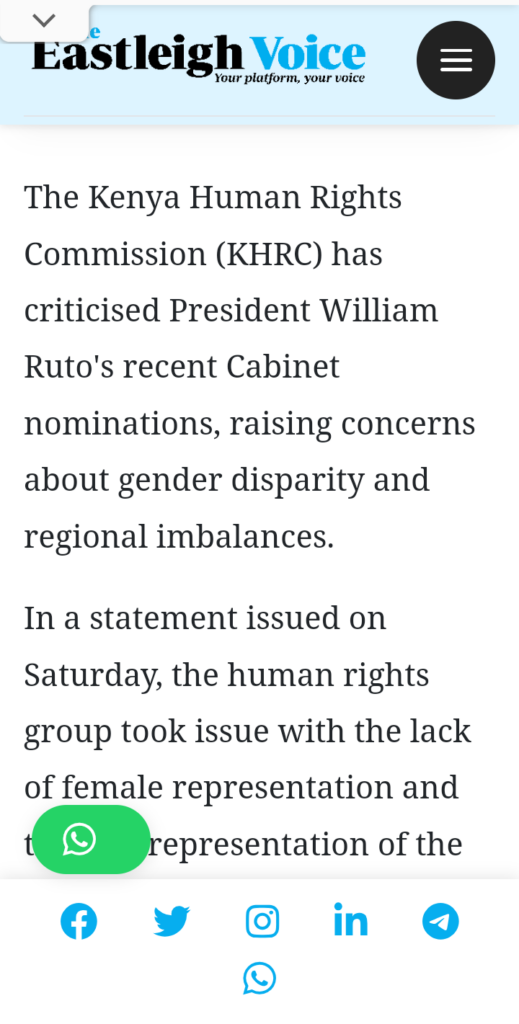
The KHRC’s statement, released on Saturday, highlights that the nomination of individuals such as William Kabogo, Lee Kinyanjui, and Mutahi Kagwe to key Cabinet positions only deepens the regional favoritism in the government.
The Commission pointed out that the Mt Kenya region now stands to dominate the Cabinet, with these new appointees potentially joining a group that already includes Justin Muturi, Rebecca Miano, Alice Wahome, and Eric Muriithi.
This could result in almost 35 percent of the Cabinet being from one region, a scenario that contradicts the principles of ethnic diversity and balanced representation.
The issue becomes more concerning when the Deputy President, also from the Mt Kenya region, is factored in.
The KHRC’s analysis reveals that if the new nominations are approved, eight Cabinet members, nearly a third of the entire government, would come from the same region.
This lack of ethnic diversity in the appointments raises questions about the President’s commitment to fostering national unity and ensuring fair representation across all regions of the country.
Apart from regional bias, the KHRC also criticized the gender disparity in Ruto’s Cabinet. Of the 20 nominated Cabinet Secretaries, only five are women, accounting for just 25 percent of the total.
This is a clear violation of the Constitution’s requirement for gender equality in government appointments.
The KHRC emphasized that the Constitution mandates the government to uphold the principles of inclusivity and equal representation, values that Ruto’s appointments fall short of.
The organization’s concerns are not unfounded, as the Constitution clearly outlines national values such as patriotism, national unity, and gender equality.
The KHRC argues that Ruto’s Cabinet appointments undermine public trust and fail to reflect the diversity and gender balance that the country strives for.
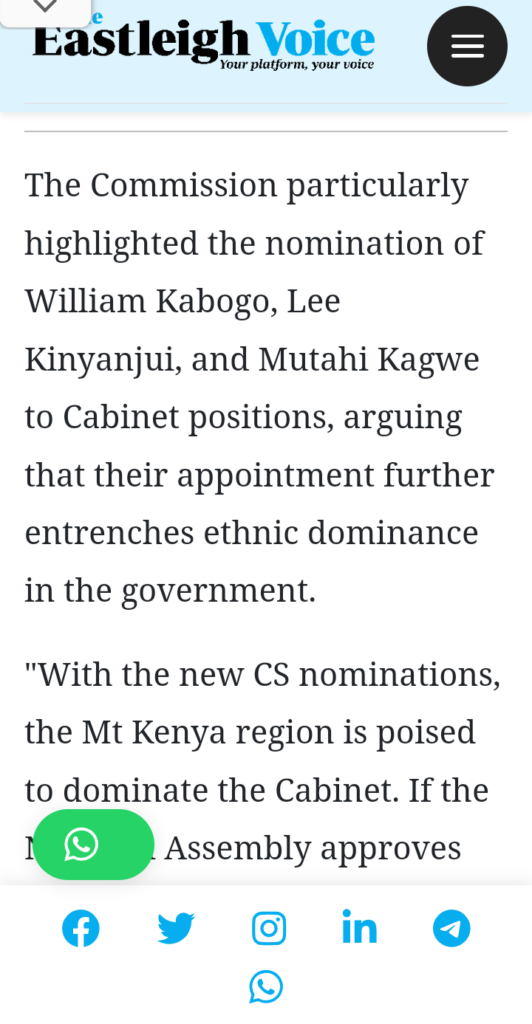
The appointments not only favor one ethnic group but also disregard the gender equality principles enshrined in law, leading to a government that lacks the inclusivity needed for effective governance.
While some political observers may see the appointments as a positive development, the KHRC’s critique sheds light on the deepening divisions within the government.
The call for more gender-sensitive and regionally balanced appointments remains urgent, as these concerns reflect broader issues about fairness and the fair distribution of power.
In failing to address these concerns, President Ruto risks alienating large sections of the population, undermining the very values of unity and equality that the Constitution strives to promote.








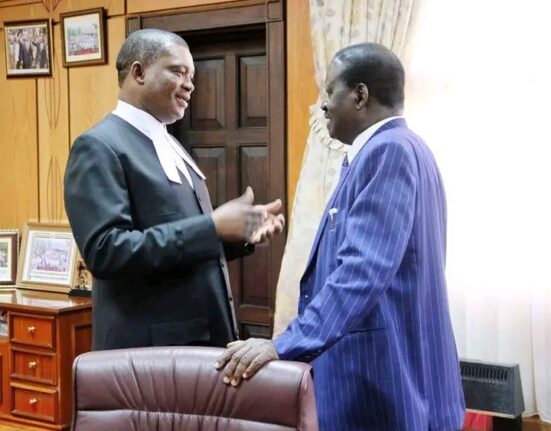
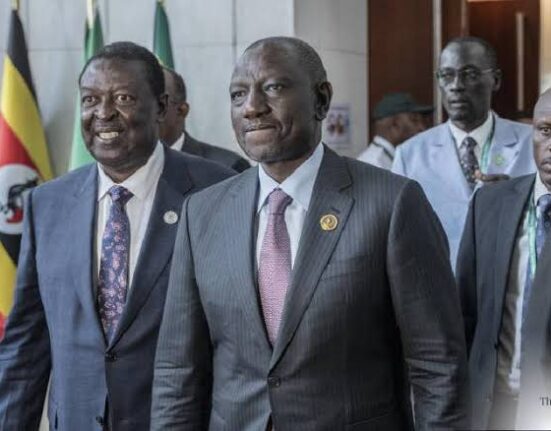
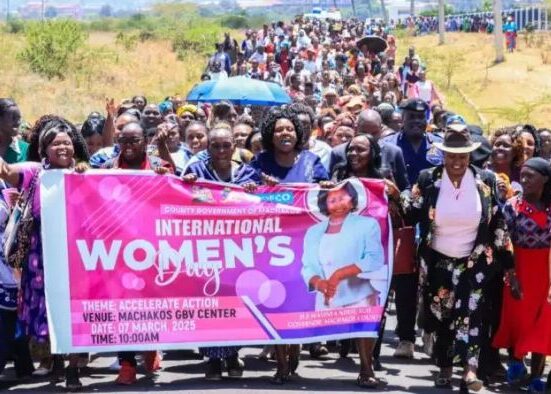
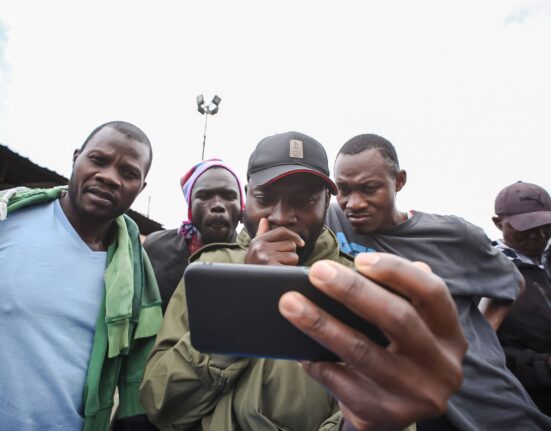
Leave feedback about this